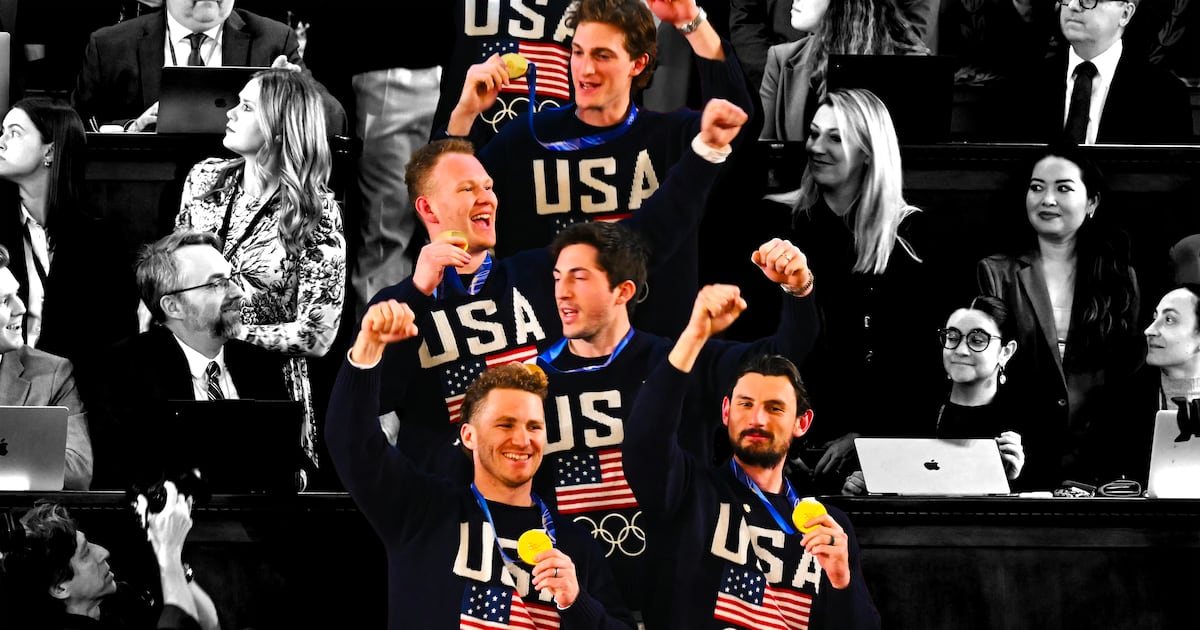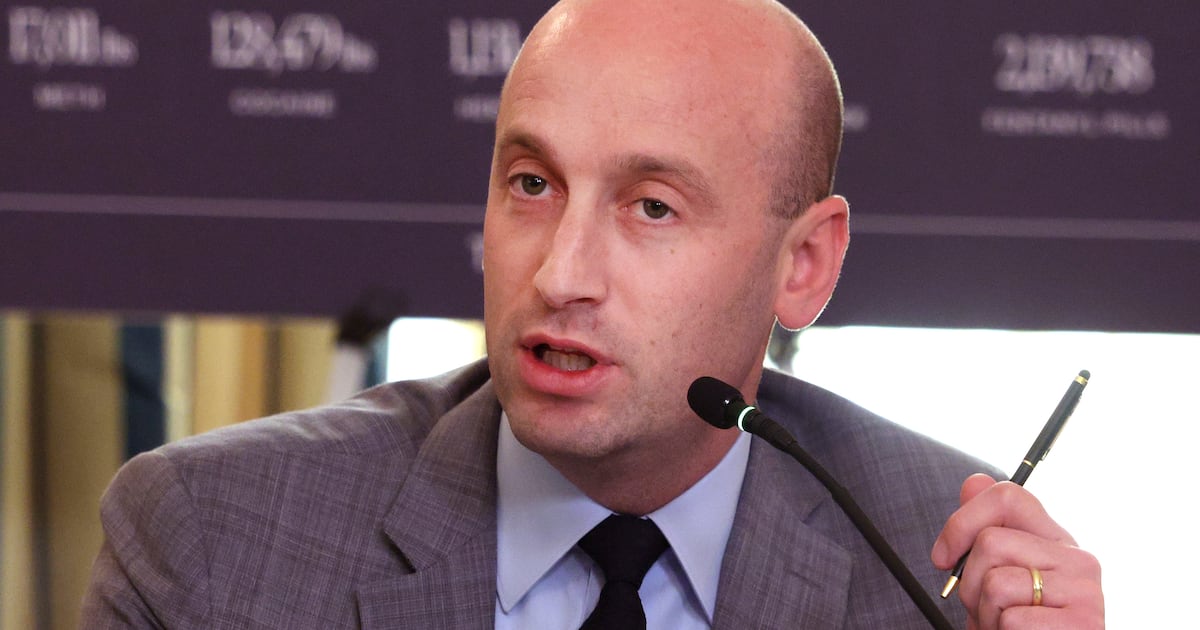Ben Mendelsohn doesn’t suffer fools lightly—at least on-screen, where over the past eight years he’s made an international name for himself playing heavies.
That villainous course began for the 49-year-old Australian in 2010 with David Michôd’s crime saga Animal Kingdom, and has continued to thrilling effect in numerous subsequent projects, including Killing Them Softly, Slow West, The Dark Knight Rises, Netflix’s Bloodline (for which he won an Emmy), Rogue One: A Star Wars Story, and this March’s Ready Player One. And in case one thinks he’s done with such nefarious parts, he’ll again exhibit his unparalleled gift for menace and malevolence next March, when he joins the Marvel Cinematic Universe as Brie Larson’s alien adversary Talos in the studio’s much-hyped Captain Marvel.
With an imposing resume like that, Mendelsohn’s latest, The Land of Steady Habits, is bound to strike some as a surprising change of pace. In writer/director Nicole Holofcener’s (Lovely and Amazing) Netflix drama, the actor stars as Anders Hill, a middle-aged Westport, Connecticut resident trying to figure out his wayward life following a divorce from his wife (Edie Falco) and “retirement” from his cushy finance-industry job. Also forced to cope with a headache-inducing twentysomething son (Thomas Mann) with a substance abuse problem and little in the way of motivation or direction, Anders finds himself in a purgatorial situation in which he clumsily, and often nastily, stumbles into trouble, if not outright crisis—leaving disastrous collateral damage in his wake. It’s an interior, nuanced performance from Mendelsohn that straddles the line between despicable and pitiable, all while remaining intensely empathetic even during his character’s lowest, most shameful moments.
Complemented by stellar work from Falco, Connie Britton (as a fellow divorcée and potential Anders paramour), Bill Camp (as Falco’s new fiancé), Elizabeth Marvel (as a distraught family friend) and Charlie Tahan (as a self-destructively discontent teen with whom Anders strikes up a drug-smoking friendship), it’s an understated, intensely potent turn, defined by an edgy energy that seems to bubble just beneath his miserable surface, ready to explode at any second. More crucially still, it once again proves that Mendelsohn is far more than merely an evil face; he’s one of Hollywood’s most versatile and commanding performers.
As such, we couldn’t pass up the opportunity to speak with the star about The Land of Steady Habits (where the feature is debuting), his wicked cinematic reputation, his all-time favorite comic-book character and his love of Netflix.
The Land of Steady Habits’ first shot perfectly encapsulates the quiet despair of being in a place like Bed Bath & Beyond, where you’re faced with endless choices about things you may not care about, and yet are using to define yourself. Have you considered the fact that, once the film comes out, you may not be allowed back in the big-box retailer?
I’ve got to tell you, the woman at the Bed Bath & Beyond where we shot it was so beautiful. I suspect that this is a case where any publicity is good publicity, so I am sure that I will be returning to Bed Bath & Beyond [laughs]. I remember looking at what we were shooting that day, and I was ecstatic with it. I just thought it was beautiful—it encapsulates so much of what’s going on for Anders, and what his world is, and his way of feeling about the world. It’s so succinct, and so beautiful. Nicole is really great. It’s wonderful stuff. It’s one of those shots where you’re just so happy you’re in it.
Were you familiar with, or had you spent time in, Westport, CT (or New England in general) before the film? Or did everything come from Nicole’s script?
It did start from Nicole’s script and Ted’s [Thompson’s] book, although my thing was that I had been a big fan of Robert Lowell. Now I know he’s not talking specifically about Connecticut, but there is something there. I had been aware of what comes across as a bit of a New England kind of malaise. There are a lot of writers there, obviously; many hail from the Northeast. So as an Australian, I had been aware through Robert Lowell, the poet, of the region. He’s in fact my favorite poet, so I did have a peripheral connection with it through his writing. His situations are much more anguished, but they do give you a strong notion of it—although I knew very, very little of people in the northeast, in the upper middle class.
Beginning with Animal Kingdom, you’ve had tremendous success playing villains. Do you feel typecast, and are you motivated to fight against it, or do you relish those types of parts?
I don’t mind it. I’ve become more aware of it when we’re doing this [press] stuff, and question time comes. I don’t necessarily look at it that way, outside of these times where it’s brought to my attention. I’ve always said, and I continue to say, that to me, it’s quite flattering. Obviously, something’s working there for the time being. It’s been a long and storied career, and if there are points in that career when I have been looked at as this type of guy, or that type of guy…I think what makes me happier is to be in things that are effective, and that people watch, and people dig—that they seem to connect with certain characters, or the films themselves. That to me is the real delight. That’s a much bigger and more important component of it. It’s sort of like looking a gift horse in the mouth, really—worrying about whether I’m playing too many villains, you know what I mean? For me, and my life, it just feels like looking a gift horse in the mouth. I take it as a compliment, and I do like it.
Anders isn’t exactly a villain, but he’s also far from a hero.
No, he’s an antihero, for sure. And he’s not, I think, one with a strong visceral kind of drive, in a way that a classic antihero might have. He’s an unleasher of chaos through his own fantasies and stubbornness about trying to map out his life according to earlier economic—and economics-of-the-heart—projections. It’s kind of like a guy who’s in 2006, deciding that the market’s never going to crash, and there it goes. He’s sort of like that somehow, in the idea he has of what his life’s going to be like. I think this is someone who doesn’t see, or has lost, the value of the relationships that he’s built up.
How did you prepare to play Anders, who unlike some of your grander characters, is ultimately an unassuming average guy who keeps getting in his own way, to everyone’s detriment.
I think most of prep is involving yourself with the people that you’re going to be working with. An awful lot of it is done not by the actors, or by me; an awful lot of it is in the differences in the story, the differences in the costumes, the way it’s shot, etc. So in a funny sort of way, the main part of what you do is kind of bend into the ship that you’re sailing on, to go with the notion of the crew analogy. It’s really just that. It’s about working on the boat that you can’t be sailing. You quite naturally find yourself a bit more interested, or a bit more drawn to, the thing which you’re going to embark on. It just seems to kind of happen that way a lot. There are certain technical things which you’ve got to address—that’s got more to do with accents and whatnot. But outside of that, you just want to bend towards something.
Anders has this edgy restlessness—in his own skin, and in his station in life—which is also true of many of your prior characters. Are you naturally that way, or is that just something that comes to you easily?
I would think so. That tends to be me. That’s probably something that’s quite consistent with me—being around groups of people and stuff like that, I can unleash that vibe. That’s probably from a source wellspring.

Ben Mendelsohn and Thomas Mann in ‘The Land of Steady Habits.’
NetflixThis is your first lead role in some time. Were you actively looking for that, thinking it’s about time again?
No, none of the stuff has really been stuff that I’ve been looking for. That’s never been the way it’s been for me. I’m not sure how many people it is that way for, actually. For me, I’ve essentially been a working actor, and I’ve stayed that. The circumstances and opportunities have risen and fallen. But I was really delighted, and very flattered, to be asked to do a lead role in Nicole’s film. Particularly because the gender balance of Nicole’s leads is heavily female. I take it as a great compliment.
You recently co-starred in Ready Player One (after Rogue One and The Dark Knight Rises), and you’ve got Robin Hood and Captain Marvel on the immediate horizon. What’s most appealing about those sorts of enormously-sized ventures—and with regards to the last of those, did you feel like you were fulfilling every working actor’s obligation to participate in at least one Marvel movie?
I was a comic-book reader in my twenties—the old X-Men et al. I’ve said this very often: Doctor Doom is my favorite character from all of the Marvel canon. My background is Australian film, so to have films that hundreds of millions of people will see is really, really special. People adore those films. They’re very pure entertainment, and I get a really great kick out of them. And again, I feel pretty lucky and pretty honored to be asked.
The Land of Steady Habits is premiering on Netflix, which was also home to Bloodline—which earned you an Emmy. I assume this means you’re a staunch supporter of the streaming platform?
Netflix has been great. They’ve been wonderful to me. Thank god for Netflix!






